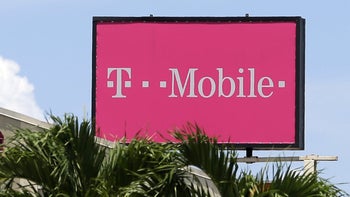Succession: The race for Apple's throne – could a hardware engineer prevail?

Steve Jobs. Tim Cook. Jeff Williams… or John Ternus?
The first two names in the aforementioned list are, of course, Apple CEOs. Out of the next two names, in contrast, only one could be the next Apple CEO.
That's the topic that got the attention of none other than Bloomberg's Mark Gurman, an Apple expert to the marrow.
Tim Cook, who has been at the helm of Apple since 2011, has undeniably left an indelible mark on the tech giant. Cook steered it through the introduction of innovative products like the Apple Watch and venturing into new territories such as streaming video and going off on AR/VR adventures with the Vision Pro headset. Despite Cook's successful term of office, speculation about his successor looms large, fueled by the lack of a clear candidate poised to seamlessly step into his shoes.
Maintaining a relatively stable executive team, Cook has surrounded himself with longtime colleagues, raising questions about the future leadership of the company. While Chief Operating Officer Jeff Williams has been touted as a potential successor, concerns about his age and longevity in the role have emerged. This uncertainty underscores the need for a leader who not only possesses the necessary skills but is also committed to guiding Apple through its next phase of growth and innovation.
As Apple grapples with regulatory challenges, shifting market dynamics, and the imperative to drive innovation, the choice of its next CEO is of paramount importance. While Cook has hinted at grooming internal candidates, including Ternus, the road ahead remains uncertain amidst ongoing management transitions. Ultimately, the company's ability to navigate these changes and sustain its legacy of innovation hinges on the selection of a leader capable of steering it into the future with confidence and conviction.
Whoever takes on the responsibility will face a difficult road ahead, as Apple has a lot to grapple with. It is under regulatory scrutiny in the US and European Union, and it’s trying to prevent the breakup of its App Store, which generates $20 billion a year in sales. Smartphone sales are dipping, and Apple is struggling to sell devices in China while also trying to gradually pull production out of the country without angering Beijing.
Back in November 2023, Tim Cook was a guest on singer Dua Lipa's podcast "At Your Service" and he delved into the topic of succession more than ever before. He emphasized the importance of preparing multiple internal candidates for leadership roles, expressing his commitment to ensuring a robust pool of potential successors within Apple. While refraining from divulging specific names, Cook underscored the meticulous nature of the company's succession planning efforts.
Toni Sacconaghi, an analyst at Sanford C Bernstein who’s covered Apple for two decades, says succession has become a topic among investors. "You look down the list of executives, and it’s really not clear how this all pans out," he says. "You wonder why there hasn’t been more transparency and exposure for the next leaders. It raises a broader question: Does Apple have a comprehensive and deliberate set of succession plans?"
The first two names in the aforementioned list are, of course, Apple CEOs. Out of the next two names, in contrast, only one could be the next Apple CEO.
That's the topic that got the attention of none other than Bloomberg's Mark Gurman, an Apple expert to the marrow.
So, who will step in?
Tim Cook, who has been at the helm of Apple since 2011, has undeniably left an indelible mark on the tech giant. Cook steered it through the introduction of innovative products like the Apple Watch and venturing into new territories such as streaming video and going off on AR/VR adventures with the Vision Pro headset. Despite Cook's successful term of office, speculation about his successor looms large, fueled by the lack of a clear candidate poised to seamlessly step into his shoes.
Enter John Ternus, the hardware engineering chief. He has also been mentioned as a potential contender for the CEO position. Known for his collaborative approach and integral role in product development, Ternus represents a logical choice to lead a company renowned for its groundbreaking gadgets. However, criticisms about his readiness and visionary outlook persist, highlighting the complexities involved in selecting a suitable successor.
As Apple grapples with regulatory challenges, shifting market dynamics, and the imperative to drive innovation, the choice of its next CEO is of paramount importance. While Cook has hinted at grooming internal candidates, including Ternus, the road ahead remains uncertain amidst ongoing management transitions. Ultimately, the company's ability to navigate these changes and sustain its legacy of innovation hinges on the selection of a leader capable of steering it into the future with confidence and conviction.
Whoever takes on the responsibility will face a difficult road ahead, as Apple has a lot to grapple with. It is under regulatory scrutiny in the US and European Union, and it’s trying to prevent the breakup of its App Store, which generates $20 billion a year in sales. Smartphone sales are dipping, and Apple is struggling to sell devices in China while also trying to gradually pull production out of the country without angering Beijing.
Toni Sacconaghi, an analyst at Sanford C Bernstein who’s covered Apple for two decades, says succession has become a topic among investors. "You look down the list of executives, and it’s really not clear how this all pans out," he says. "You wonder why there hasn’t been more transparency and exposure for the next leaders. It raises a broader question: Does Apple have a comprehensive and deliberate set of succession plans?"










Things that are NOT allowed: